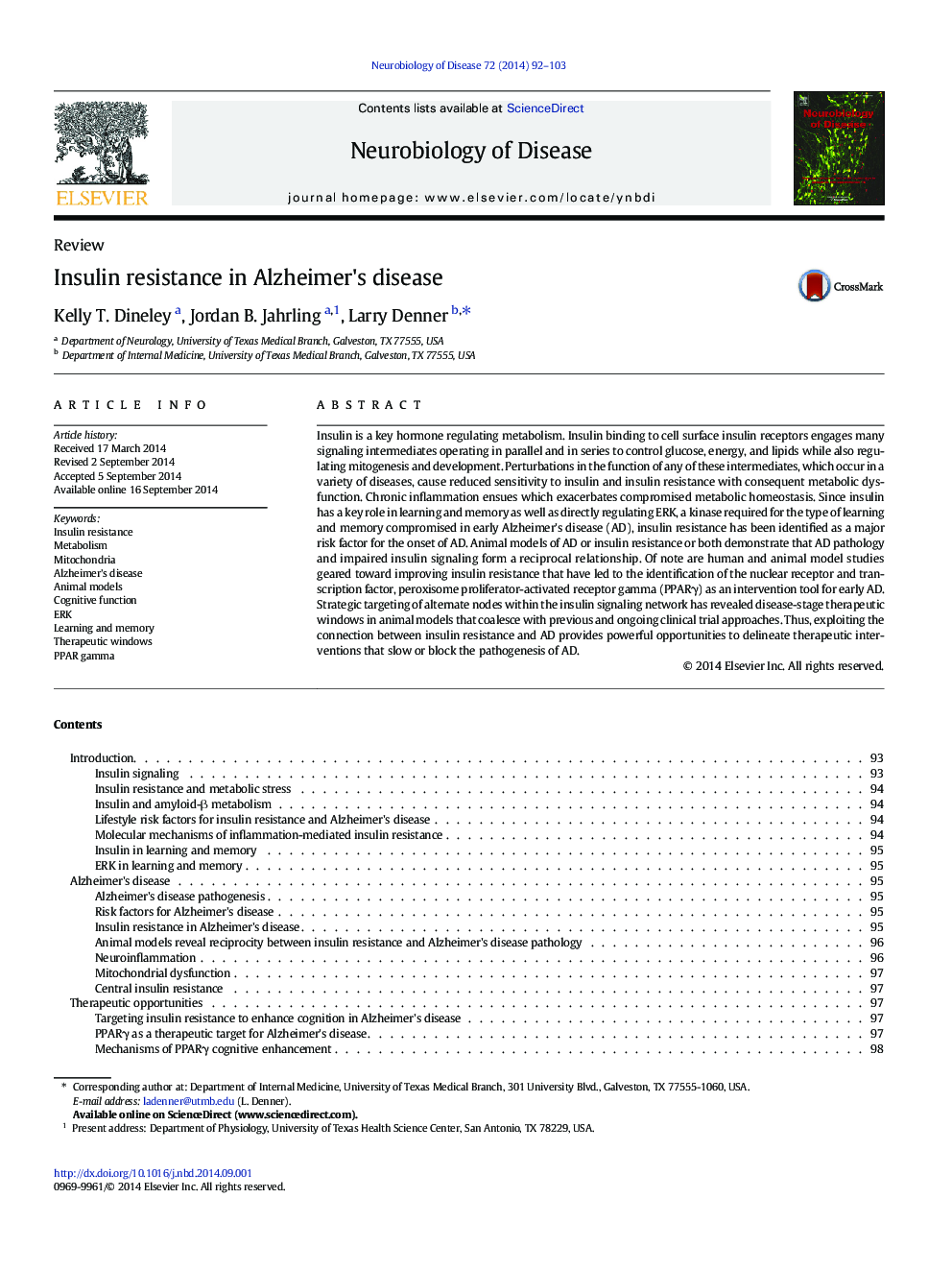| Article ID | Journal | Published Year | Pages | File Type |
|---|---|---|---|---|
| 6021876 | Neurobiology of Disease | 2014 | 12 Pages |
â¢Dysfunctional insulin signaling causes insulin resistance (IR) and perturbed metabolic function.â¢IR is a risk factor for Alzheimer's disease (AD) cognitive decline.â¢Animal models of AD have IR and cognitive decline similar to humans with AD.â¢Insulin sensitizers improve IR and enhance cognition in animal models of AD.â¢Animal models of AD reveal therapeutic windows of opportunity for cognitive enhancement.
Insulin is a key hormone regulating metabolism. Insulin binding to cell surface insulin receptors engages many signaling intermediates operating in parallel and in series to control glucose, energy, and lipids while also regulating mitogenesis and development. Perturbations in the function of any of these intermediates, which occur in a variety of diseases, cause reduced sensitivity to insulin and insulin resistance with consequent metabolic dysfunction. Chronic inflammation ensues which exacerbates compromised metabolic homeostasis. Since insulin has a key role in learning and memory as well as directly regulating ERK, a kinase required for the type of learning and memory compromised in early Alzheimer's disease (AD), insulin resistance has been identified as a major risk factor for the onset of AD. Animal models of AD or insulin resistance or both demonstrate that AD pathology and impaired insulin signaling form a reciprocal relationship. Of note are human and animal model studies geared toward improving insulin resistance that have led to the identification of the nuclear receptor and transcription factor, peroxisome proliferator-activated receptor gamma (PPARγ) as an intervention tool for early AD.Strategic targeting of alternate nodes within the insulin signaling network has revealed disease-stage therapeutic windows in animal models that coalesce with previous and ongoing clinical trial approaches. Thus, exploiting the connection between insulin resistance and AD provides powerful opportunities to delineate therapeutic interventions that slow or block the pathogenesis of AD.
